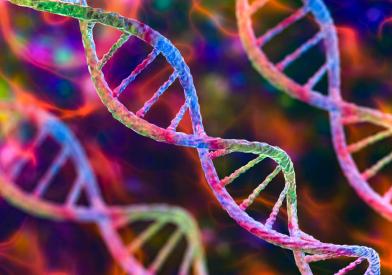Lynch syndrome is a common and often under-diagnosed inherited condition that increases one's risk for a variety of cancers, including colon, rectal, uterine, ovarian, urinary tract, and other malignancies. Dana-Farber Cancer Institute's Lynch Syndrome Center is the largest and most comprehensive multidisciplinary cancer genetics group in the region that specializes in coordinating the care of people with Lynch syndrome.
The Center's mission is to provide personalized and comprehensive care for families with Lynch syndrome, supported by world-class research and state-of-the-art diagnostics. As part of Dana-Farber's Center for Cancer Genetics and Prevention, our specialists help manage the comprehensive care of individuals and families with Lynch syndrome by providing genetic testing for individuals at risk for Lynch syndrome, creating personalized screening plans aimed at preventing Lynch syndrome-related cancers, and coordinating care with experts in surgery, gastroenterology, dermatology, and oncology.
Experts in Lifelong Care
Scientific knowledge about Lynch syndrome cancer risk and prevention strategies is constantly evolving. The Center founder, Dr. Sapna Syngal, has been involved in the development of national guidelines used to best manage Lynch syndrome. We ensure that our patients' personalized management plans are up-to-date with cutting-edge research and state-of-the-art national guidelines. The Center sees our Lynch syndrome patients and families on a long-term basis. At clinical visits, our patients have the opportunity to review the results of their screening tests with their Lynch syndrome provider, plan and revise strategies for future cancer prevention and screening, explore opportunities to participate in Lynch syndrome-related research, and discuss any implications for other at-risk family members.
Patients and Families
The Lynch Syndrome Center specializes in caring for individuals with a diagnosis of Lynch syndrome (LS) or who have a family history of LS. We recommend our services to individuals who:
- Have previously had genetic testing demonstrating a harmful inherited change (called a "mutation") in one of the Lynch syndrome genes: MLH1, MSH2, MSH6, PMS2, or EPCAM
- Have a relative who carries a harmful inherited variant in one of the Lynch syndrome genes
- Have a cancer diagnosis and/or a family history of cancer that is suggestive of Lynch syndrome
- Have had testing of a prior tumor that was suggestive of Lynch syndrome
- Have had negative or inconclusive genetic testing results, but are still concerned about Lynch syndrome
- Are seeking information about Lynch syndrome







